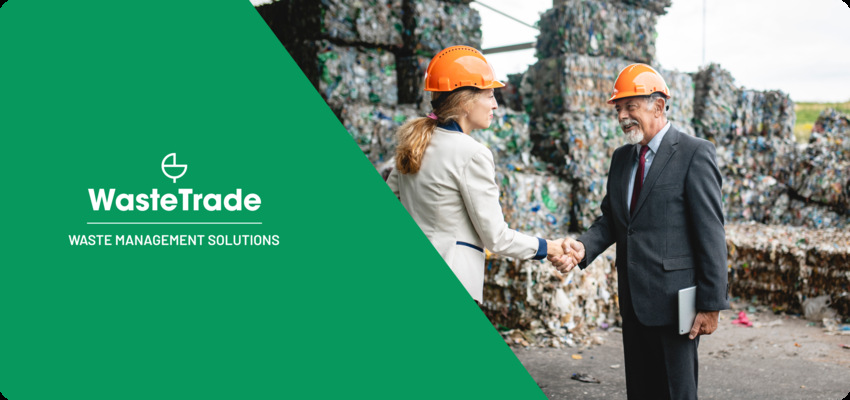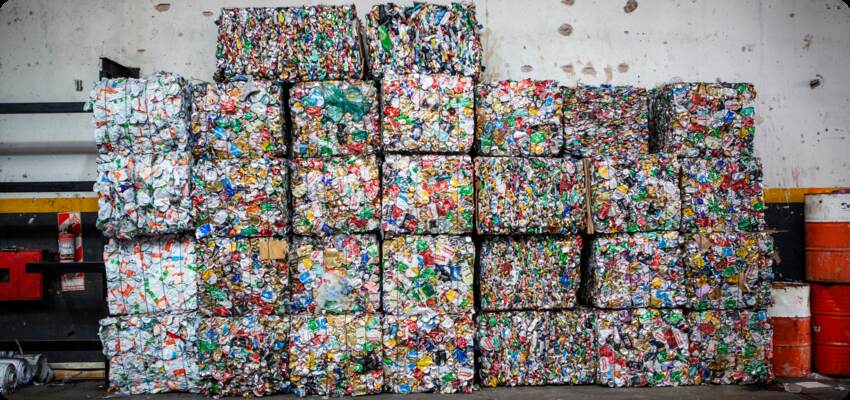Waste Management Solutions
Author: George Kiernan / Posted: 19th April 2024

In the realm of waste management solutions, adopting sustainable and efficient waste disposal methods is paramount. As global concerns about environmental conservation and sustainable practices intensify, both businesses and individuals are seeking innovative ways to manage and dispose of waste responsibly. From exploring diverse waste management strategies to embracing sustainable disposal techniques, WasteTrade, the global waste marketplace, serves as a pivotal platform connecting buyers and sellers of waste materials, fostering a greener and more environmentally conscious future. Join us as we delve into the transformative potential of eco-friendly practices in modern waste disposal methods.
Waste Management Solutions

Implementing effective waste management solutions is crucial for mitigating the negative environmental impact of waste. One innovative solution is the implementation of recycling programmes that encourage the separation and proper disposal of recyclable materials such as paper, plastic, and glass. By increasing recycling rates, we can reduce the amount of waste sent to landfills and conserve valuable resources. Additionally, investing in technologies like composting facilities can help divert organic waste from landfills, where it would otherwise emit harmful greenhouse gases. By converting organic waste into nutrient-rich compost, we can reduce methane emissions and support sustainable agricultural practices.
In addition to recycling and composting, promoting responsible consumer habits is another important waste management solution. Educating the public about reducing waste, reusing materials, and making environmentally friendly choices can significantly decrease the amount of waste generated. Moreover, encouraging businesses to adopt sustainable practices, such as using eco-friendly packaging and implementing waste reduction strategies, can further contribute to a more sustainable waste management system. By working together to implement these solutions, we can protect the environment, conserve resources, and create a more sustainable future for generations to come.
Sustainable Waste Disposal

Sustainable waste disposal is essential for environmental protection, aiming to find alternatives to traditional landfill methods. By reducing, reusing, and recycling waste materials, we can significantly minimise environmental impact. Recycling, for example, saves energy, reduces greenhouse gas emissions, and conserves natural resources. Composting organic waste enriches soil quality and reduces the need for chemical fertilisers, promoting a circular economy.
Moreover, sustainable waste disposal techniques can drive economic growth and job creation. The waste management industry plays a critical role in collecting, processing, and repurposing materials, supporting various green industries. Investing in technologies for waste-to-energy conversion or producing goods from recycled materials can help businesses contribute to a sustainable future while generating revenue. Governments can further incentivise sustainable waste management practices through policies and regulations, encouraging eco-friendly approaches to waste disposal.
Waste Disposal Methods
In the United Kingdom, waste disposal methods are crucial for managing the vast amount of waste generated daily by households and businesses. One commonly used method is landfill disposal, where waste is buried underground in designated sites. Although landfill disposal is cost-effective and convenient, it raises significant environmental concerns, such as the production of harmful gases and leachate, and the consumption of valuable land space. Efforts are underway to reduce reliance on landfills and promote more sustainable methods.
Recycling is a key waste disposal method in the UK, aiming to decrease the amount of waste sent to landfills. Recycling involves collecting, sorting, and processing materials like paper, plastic, glass, and metal to create new products. The UK has set ambitious recycling targets to enhance recycling rates and mitigate the environmental impact of waste disposal. Encouraging individuals and businesses to recycle more and implementing effective recycling programmes are essential steps towards a sustainable waste management system in the UK.
Types Of Waste Management
Waste management in the UK encompasses various methods to handle and dispose of different types of waste generated by industries, businesses, and households. One common practice is recycling, which involves collecting and processing waste materials such as paper, glass, plastic, and metal to produce new products. This process reduces the amount of waste sent to landfills, conserves natural resources, and lowers greenhouse gas emissions associated with manufacturing new materials. The UK has made significant strides in promoting recycling through household recycling schemes, dedicated recycling centres, and initiatives encouraging businesses to adopt sustainable practices.
Another critical aspect of waste management in the UK is waste-to-energy conversion. This method involves converting non-recyclable waste into energy through processes like incineration or anaerobic digestion. Incineration facilities burn waste to generate electricity or heat, while anaerobic digestion breaks down organic waste to produce biogas for energy. Waste-to-energy technologies help reduce the environmental impact of waste disposal while generating renewable energy. The UK government has been investing in waste-to-energy infrastructure to support a more sustainable approach to waste management and reduce reliance on traditional landfill methods.
